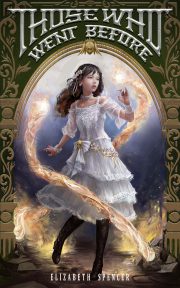Preservation Guidance for Authors Planning to Donate Their Personal Papers to Archives
by Monica Louzon
Writers have a unique power: With our words, we transport our readers to new worlds. It doesn’t matter whether we write stories or poems, or whether we write long or short works—the end result remains the same. As we exercise that power throughout our lifetimes, we will generate countless documents and scraps as we create worlds, refine drafts, and interact with our families, friends, colleagues, and fans. With that power comes great responsibility: caring for not only our finished works but also our authorial papers and the writing-adjacent ephemera we generated along the journey.
Some writers delete old files and recycle old paper scraps no longer necessary for the drafting process. Still, I’m willing to gamble that many of us (if not most!) hold onto our worldbuilding notes or poetry experiments on the off-chance that we might want to look at them again in the future.
Your creative process matters.
It matters to you. It will matter to researchers trying to understand what it was like to create speculative fiction and poetry during your lifetime. The notes and anecdotes you jot down during your creative process are fodder for future historians seeking to glean details about how much writers made and how geopolitical events impacted (or were reflected in) the works and creative processes of writers of a specific time period.
There are a few steps we authors can take now, in the short term, to help future archivists and family members who may find themselves processing our authorial papers.
Regularly review your authorial papers on a rolling basis. Try to do this every year or two. That way, you know what you’re still holding onto and why you’re giving it that physical (or digital) space.
- Redact personally identifiable information that could be used for identity theft before donating your authorial papers. This includes social security numbers, license numbers, mailing addresses, and banking details.
- Put dates on things. You may not know specifically when you wrote something, but you probably remember the approximate year, and that’s a lot more than anyone else will. This can also help you when you’re trying to find notes for a specific idea from fifteen years ago, but you don’t have time to read every sheet of paper.
- Group documents by category. You can group them by drafts of specific stories or zines you made during a certain timeframe and store loose pieces of paper from the same period in an envelope marked with approximate dates. If you’ve got the space, labeled boxes help.
- Create an inventory. Archivists with whom you work will be extremely grateful for even a one-page list generally summarizing the types of books, documents, and other materials you’re donating. A basic inventory makes their jobs much more manageable, giving them a starting place as they begin processing your donated papers.
- Clearly categorize personal 18+ or NSFW materials. Sexually explicit materials pertaining to your personal life can have historical value to researchers, particularly those investigating queer history, gender roles, and sexual norms within the speculative fiction community. If you decide to preserve such materials, however, future archivists (and your family members!) will be grateful if you gather them into an envelope or box and clearly mark it with “18+” or otherwise indicate they are Not Safe For Work (“NSFW”).
Be selective. When you’re deciding what to keep, you don’t have to hang onto every single copyedited version of your story drafts—try to preserve the drafts that have had substantive edits and/or markup because they will give researchers the most insight into your creative and editing processes.
- Don’t hold onto trash—literally! No one—be they family, friends, or archivists—wants to be sorting through or touching old drink bottles, chewed gum, used tissues, or boxes of grimy laptops. More importantly, items like these can attract bugs, grow mold, and physically damage the papers near them.
- Give annotated items more weight. Whenever you go to a convention, you are just one person among hundreds (or thousands!) who will all receive the same program. Researchers will be more interested in your program if you’ve annotated it with thoughts, story ideas, or reactions to the events and panels you attended. Archivists routinely have to de-duplicate items in their collections, which means they deaccession duplicate copies of the same item from their holdings unless those duplicates contain additional substance that sets them apart from the other duplicates.
- Consider your legacy. What do you want future generations to know about you? If you’re holding onto family secrets or documents that could disrupt entire lives of people who might still be alive when you die, consider working with the archivists who will be receiving your works (or with a lawyer) to seal them until a set date has passed (such as 50 or 75 years after your death date). After that time, they could be donated to an archive or made available to researchers.
Properly store your authorial papers. Basements and attics are tempting storage locations, but they are rarely climate-controlled. Variations in air temperature and humidity can destroy documents in a surprisingly short time. Whenever possible, store any physical documents in acid-free folders or boxes in a climate-controlled space. If you’re storing items on the ground level of your home (or in the basement), ensure they’re at least a few inches off the floor. This can help protect them from flooding.
If you have performed work for SFWA in any capacity, please separate materials to that work from your authorial papers and contact the History Committee! These materials are considered organization records for SFWA, and the SFWA History Committee would be happy to help you figure out whether they should be donated to the official SFWA archives or operational records that SFWA needs to be able to reference more frequently.
 Monica Louzon (she/her) is a queer writer, translator, and editor. Her stories, poems, translations, and essays have appeared in over 35 different magazines and anthologies, including Apex Magazine, Archive of the Odd, Futura House, Paranoid Tree, Star*Line, and others. Her story “9 Dystopias” was a Best Microfiction 2023 winner, and her speculative poetry was nominated for the Dwarf Stars Award. To learn more about Monica and her work, please visit https://linktr.ee/molowrites.
Monica Louzon (she/her) is a queer writer, translator, and editor. Her stories, poems, translations, and essays have appeared in over 35 different magazines and anthologies, including Apex Magazine, Archive of the Odd, Futura House, Paranoid Tree, Star*Line, and others. Her story “9 Dystopias” was a Best Microfiction 2023 winner, and her speculative poetry was nominated for the Dwarf Stars Award. To learn more about Monica and her work, please visit https://linktr.ee/molowrites.



